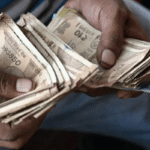In a new study, experts warn that consuming a crucial vitamin may increase the risk of severe diseases such as cardiovascular disease and blood vessel inflammation.
This vitamin is commonly present in daily foods such as bread, meat, fish, and nuts.
A study published Monday in the journal Nature Medicine found that taking excessive doses of niacin — vitamin B — increases the risk of blood vessel damage and cardiovascular disease.
Healthcare experts recommend 16 mg per day for men and 14 mg per day for non-pregnant women.
The author, Dr Stanley Hazen, who is the chief of cardiovascular and metabolic sciences at the Cleveland Clinic’s Lerner Research Institute, said: “About one in every four Americans has greater than the recommended level of niacin.”
It is unclear how much niacin is harmful and will be determined in future studies.
Dr. Hazen went on to say: “The average person should avoid niacin supplements now that we have reason to believe that taking too much niacin can potentially lead to an increased risk of developing cardiovascular disease.”
“Americans consume much of niacin in their diet as scientists revealed in the 1940s that low levels of the nutrient may lead to a fatal condition called pellagra,” according to Dr. Hazen.
Before statins were used to lower blood cholesterol, niacin pills were recommended to improve cholesterol levels.
The researchers discovered a compound in the blood samples that included excessive quantities of niacin.
It was discovered that the niacin breakdown product may increase the participants’ risk of developing a heart attack, stroke, or death.
Dr. Robert Rosenson, director of metabolism and lipids at Mount Sinai Health System in New York City, described the findings as exciting and significant.
This research could open the door for the development of drugs to treat such disorders.
Dr. Rosenson, who was not involved in the study, expressed hope that the food industry will reduce the amount of niacin in items such as bread.
“This is a case where too much of a good thing can be a bad thing.”







